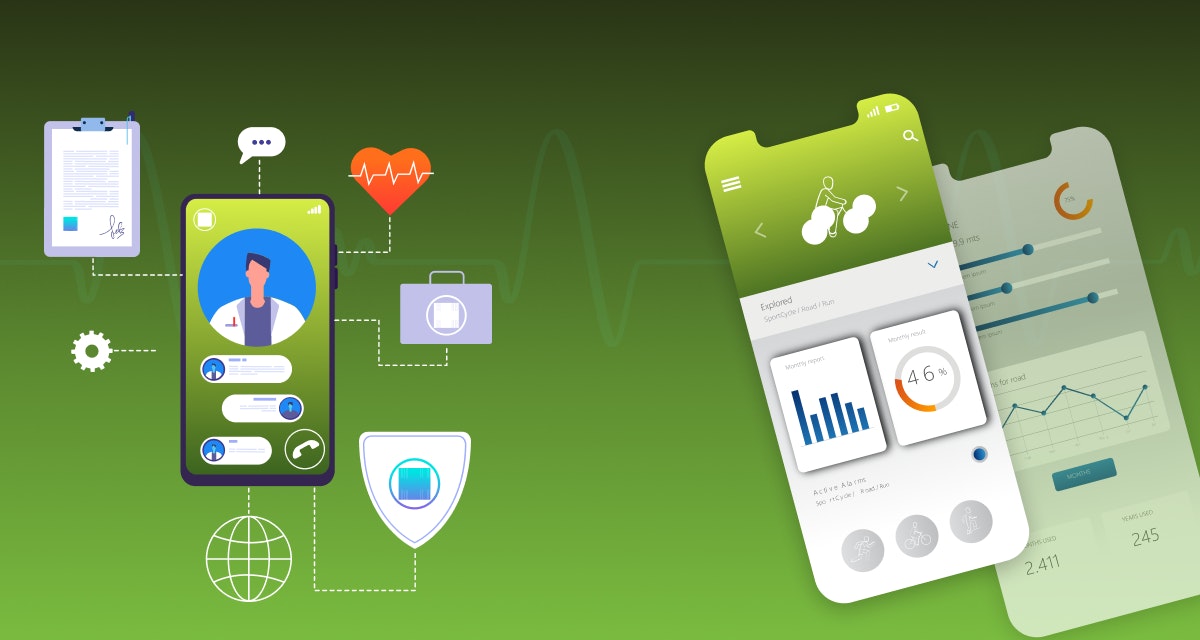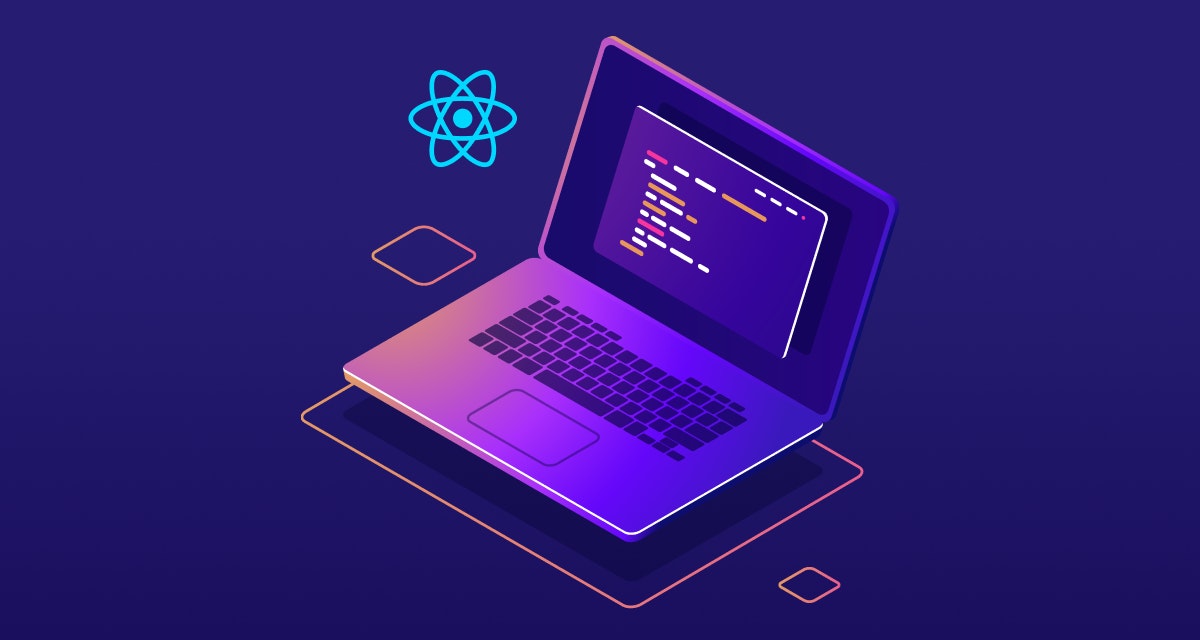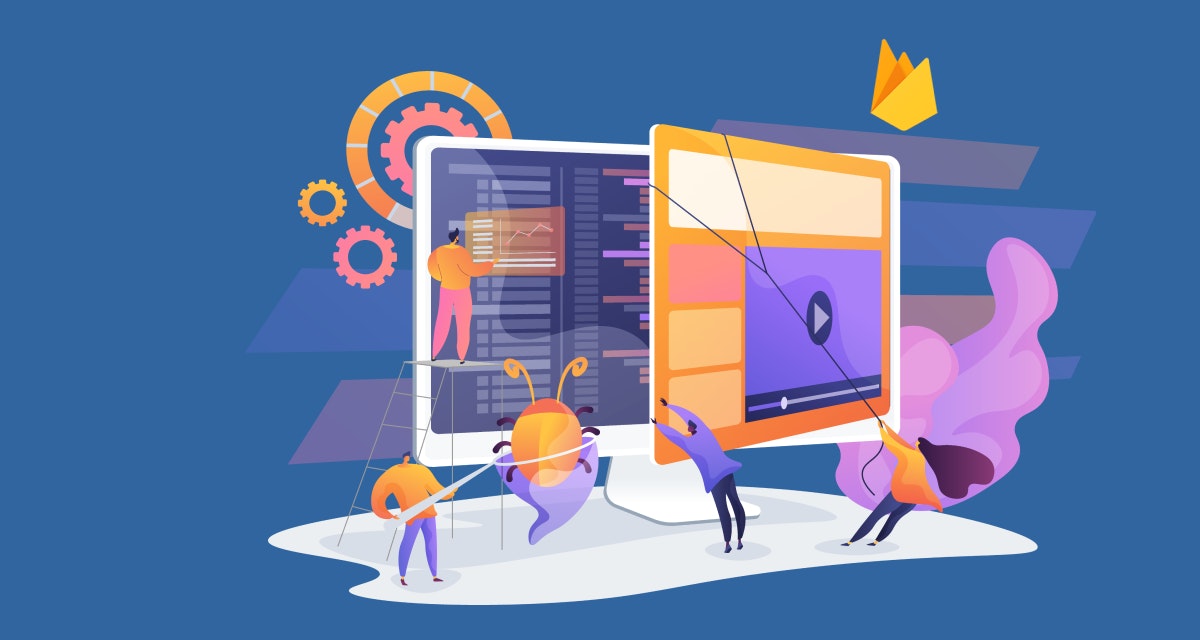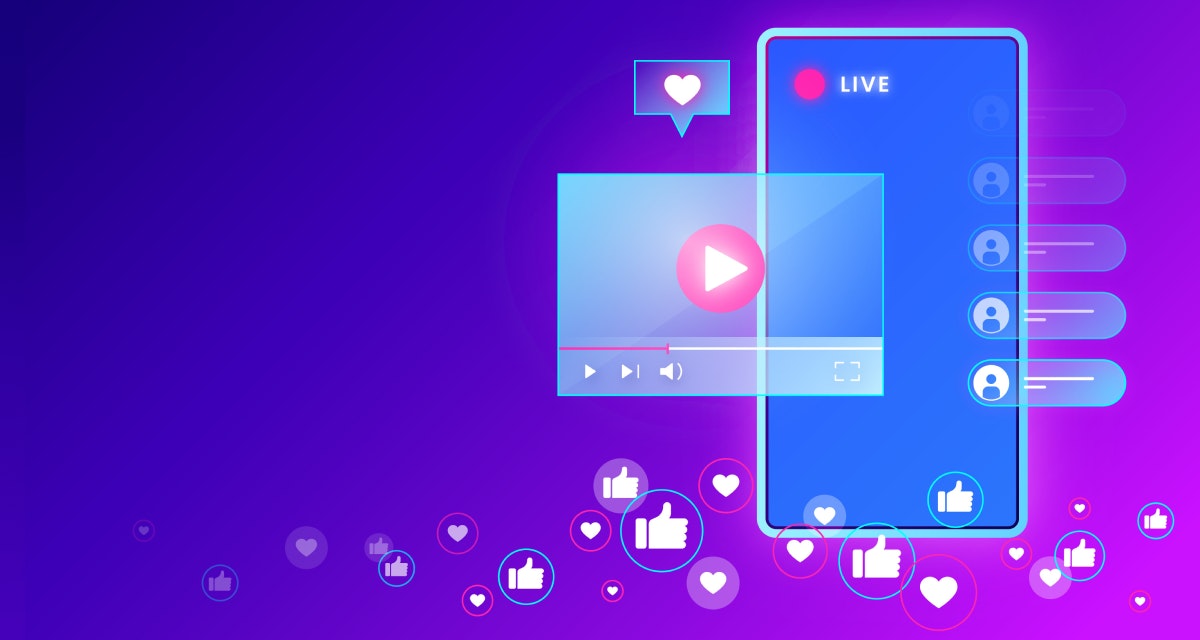With each passing day, mobile technologies unveil something innovative that reboots user’s life!
You might argue, it simply eats our time and makes us lazy. In our free time, we tend to play with mobiles instead of getting into any physical activity or being social (like face-to-face social meetings).
Every coin has two sides. Likewise, mobility has its pros and cons. It always depends on the individual’s choice of where we want to focus. In the context of mobiles, they turn into blessings when it comes to living a healthy life by offering a variety of fitness applications.
In the last few years, mobile apps have started controlling the health and fitness industry up to some extent. Fitness fanatics are preferring to stay physically fit by maintaining their routine life and receiving prompt treatment for minor diseases through robust wellness apps.
“Precautions are better than cure”, and healthcare mobile apps help people to adopt this attitude effortlessly. It was a call for revolution that has changed the metaphorical and literal face of the health and fitness industry. Let’s move ahead to have greater insights on this.
Extensive Use of Apps
We can bifurcate the health apps into two parts: medical and wellness. 15% of medical apps is used by physicians and rest of the 85% is wellness apps that are designed to serve the patients or consumers.
Medical Apps
These apps are specially designed for doctors or surgeons. Using the advanced capabilities of mobile sensors, they can identify critical health problems. The findings can be geo-located, shared with the partner doctors, synced with the patient record.
Medical apps also work as drug administration, supplementary equipment, and disease management tool. Moreover, the apps allow physicians to access patient data on an immediate basis. The best medical mobile apps development are UpToDate, Epocrates, Micromedex ($3), etc.
Wellness Apps
Wellness apps hold various sub-categories such as self-measurement, self-testing, health information and physical fitness or training. These apps enable fitness fanatics to take proactive steps to stay fit by monitoring their health on a regular basis. The best wellness apps are Fitbit, Nike+ Run Club.
Geo-location
Combine iBeacon technology with mobile apps to access the location-based user information through the geo-targeting facility. iBeacon delivers location-based content on mobile apps using different methods like push notifications. It facilitates physicians and users to receive the right information at the right time based on their geo-location.
Wearables
It’s a bit different technology, but they are often connected with mobile apps. One of the very common examples of wearable is fitness trackers that help individuals in monitoring and measure their health status on a personal level. Users can also share and compare their progress with other people.
Such practices motivate them to stick towards their workouts and attain better results. Today, we have advanced wearables that comprise robust sensors that enable users to diagnose diseases along with tracking and or monitoring their wellness.
Customization
Pharmaceutical companies can go for customized mobile app development to cater for customers and physicians with more personal and ongoing experience. Advanced health apps track the user’s (a doctor or a patient) mobile history and current behaviours and accordingly offer tailored health content to them.
One-to-one communication is also an integral part of app personalization. Personalized interactions help in discovering users’ preferences and delivering relevant information at the right time. However, a challenge for health content providers is, they have to maintain a proper balance between privacy and personalization.
Big Data and Analytics
Big data profoundly affect every industry vertical, with no exception for the health and fitness domain. Mobile apps contribute a significant portion by collecting and processing various contextual data, usage data, and physiological data. Physicians and consumers can use the data to inform behavioural modifications and prescribing recommendations. A thorough analysis of quality data drives better patient outcomes and greater health decisions.
A New Way of Communication
Next-generation mobile apps allow to set up a quick conversation amongst patients and physicians. Doctors can explain required treatments on smartphones with the help of genomic/anatomical maps, visual cues, multimedia, etc. Sometimes, physicians prescribe post-treatment using mobile apps, so a patient can easily continue that remedy when the doctor is not available.
And of course, they can take the help of 3rd party mobile apps like Skype that allows for remote check-ups, diagnostics, and treatments via a phone call or video. Apart from these, fitness apps facilitate patients with various communication threads so that they can get instant treatment for any disease.
Progress Tracking Tools
A few years back, people were not able to track the success of their hard workouts of losing weight, building muscles, etc. after a few weeks or months. This was the primary cause that they used to give up their exercises in between. Well, today we have highly dynamic fitness apps that generate real-time progress reports on each bodily change.
Apart from just losing weight, apps deliver an accurate picture of users’ performance along with various metrics such as active minutes, speed, calories burned, and many other indicators that aid users in measuring the progress in a meaningful way. These days, fitness apps also encompass diet trackers to facilitate users with a more holistic view of their health.
Videos – An Incredible Source of Information
Customers and physicians consider videos as an essential source of information for prescribing decisions, drug purchase, diagnostic, etc. Thus, most medical apps permit customers and doctors to upload their videos.
No doubt, YouTube is the best platform to access ample videos, though the pharmaceutical companies and large health centres prefer to convey various information to the users or doctors via videos. For every useful video, apps permit users to share and drop a comment on it as well as follow its creator. Videos enable users to gain more information on any subject along with a visual presentation.
So healthcare iOS and Android mobile app development help patients, users, and physicians to digitize their medical or fitness experience. It is a quite cost-effective and more convenient way for individuals to remain healthy in their busy schedules.
Having exclusive experience of working with diversified industry domains, Intuz has served several clients belonging to the health care industry. As client satisfaction is the prime part of our vision, we work hard to develop and hand over reliable and brilliant health and fitness mobile apps. We enable companies to deliver the best services and treatments to their customers and users to receive quality medical and fitness therapy in time.
Image Credit: Healthcare Global




